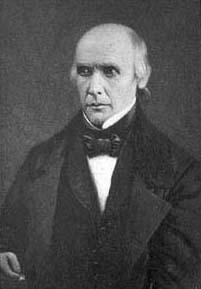Cave Johnson facts for kids
Quick facts for kids
Cave Johnson
|
|
|---|---|
 |
|
| 12th United States Postmaster General | |
| In office March 6, 1845 – March 4, 1849 |
|
| President | James K. Polk |
| Preceded by | Charles A. Wickliffe |
| Succeeded by | Jacob Collamer |
| Member of the U.S. House of Representatives from Tennessee's 9th district |
|
| In office March 4, 1843 – March 3, 1845 |
|
| Preceded by | Harvey Watterson |
| Succeeded by | Lucien Chase |
| Member of the U.S. House of Representatives from Tennessee's 11th district |
|
| In office March 4, 1839 – March 3, 1843 |
|
| Preceded by | Richard Cheatham |
| Succeeded by | Milton Brown |
| In office March 4, 1833 – March 3, 1837 |
|
| Preceded by | Constituency established |
| Succeeded by | Richard Cheatham |
| Member of the U.S. House of Representatives from Tennessee's 8th district |
|
| In office March 4, 1829 – March 3, 1833 |
|
| Preceded by | John Hartwell Marable |
| Succeeded by | David W. Dickinson |
| Personal details | |
| Born | January 11, 1793 Tennessee County, Southwest Territory, U.S. |
| Died | November 23, 1866 (aged 73) Clarksville, Tennessee, U.S. |
| Political party | Democratic |
| Spouse | Elizabeth Dortch Brunson |
| Education | Cumberland College |
Cave Johnson (born January 11, 1793 – died November 23, 1866) was an important American politician from Tennessee. He was a member of the Democratic Party. Johnson served in the United States House of Representatives as a congressman. He also became the 12th United States Postmaster General under President James K. Polk from 1845 to 1849.
Contents
Cave Johnson's Early Life and Career
Johnson was born near what is now Springfield, Tennessee. His parents were Robert and Mary Noel Johnson. He was named after a Baptist minister, Rev. Richard Cave.
He studied at Cumberland College. When the War of 1812 started, he tried to form a group of volunteers. Later, in 1813, he joined his father's military unit during the Creek War. After the war, he finished his law studies in Nashville.
Johnson later settled in Clarksville. He was part of the town's first group of leaders. When he was first elected to Congress in 1829, he owned an iron factory. As a politician, he supported the idea of protecting slavery under the federal constitution. He believed this would prevent more extreme Southern politicians from causing bigger problems.
The Telegraph and Congress
During his time in Congress, Samuel Morse asked for money to build the first telegraph line. This line would connect Baltimore and Washington. Johnson initially made fun of the idea. He even suggested funding research into "animal magnetism" instead.
However, after the telegraph line worked, Johnson apologized to Morse. He called the telegraph an "amazing invention."
A Leader in Washington
Cave Johnson played a big role in James K. Polk's journey to become president. He helped manage Polk's campaign for both the Democratic party meeting and the main election. After Polk won, he chose Johnson to be the United States Postmaster General. Johnson held this job for Polk's entire term.
Modernizing the Post Office
As Postmaster General, Johnson made big changes to the postal system. Before him, people usually paid for mail when they received it. Johnson changed this by introducing the first adhesive postage stamp in 1847. This meant people paid for postage when they sent the mail. He is also known for adding collection boxes on city streets. These boxes made it easier for people to send letters.
Johnson was also in charge of the Baltimore–Washington telegraph line. He found it hard to make money from the line because other private telegraph companies started up. He thought that telegraph lines should not be left only to private companies. He worried they would harm the Post Office and give special information to a few people. However, other politicians in his party did not agree with him.
Later Years and Legacy
After his time as Postmaster General, Johnson continued to serve his state. He worked as a judge in a state court. He also became the president of the Third Bank of Tennessee from 1854 to 1860.
During the time leading up to the American Civil War, Johnson tried to keep Tennessee loyal to the United States government. He helped write a statement urging the state to stay in the Union. However, this effort did not succeed. He later sided with the Confederacy but did not fight in the war himself.
After the Battle of Fort Donelson, when Clarksville came under Union control, Johnson was one of the people who met the Union officer. In 1866, he was elected to the state Senate. However, he was not allowed to take his seat by allies of the governor.
Johnson married Elizabeth Dortch in 1838. They had three sons together.
Images for kids
 | Stephanie Wilson |
 | Charles Bolden |
 | Ronald McNair |
 | Frederick D. Gregory |


